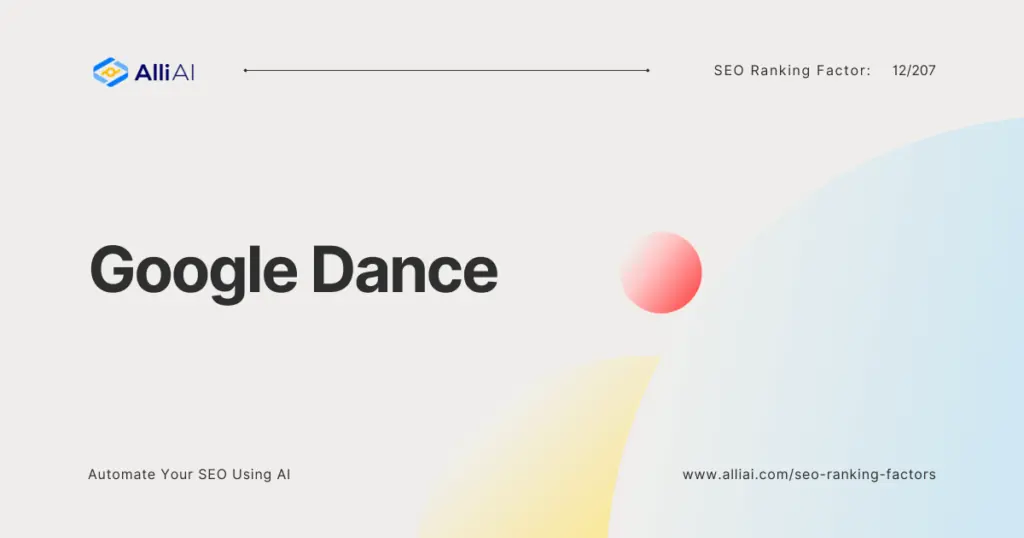What is Google Dance?
Google Dance refers to the period of time when Google updates its search engine algorithms, causing fluctuations in website rankings on the search engine results pages (SERPs). During this period, it’s common to see websites’ positions in the search results dance around – some may drop in ranking, while others may climb. This phenomenon was more prominently observed in the early 2000s when Google made updates on a monthly basis, but it can still be observed today, albeit less dramatically, due to more frequent but smaller updates.
Imagine you’re in a large library looking for books on a specific topic. Over time, the librarian finds more books and learns more about which books are most helpful, so they reshuffle the bookshelves to make the search easier for everyone. If you were to come in every day during this reorganization, you’d find books on your topic in slightly different places each time. This is similar to what happens during the Google Dance; Google is constantly reshuffling its “library” (the search results) to try and provide users with the most relevant information based on the latest data and algorithms.
Why is Google Dance important in SEO?
Understanding the Google Dance is crucial for SEO professionals and website owners because it represents the dynamic nature of Google’s search engine. Recognizing that rankings can fluctuate due to factors beyond one’s immediate control emphasizes the importance of a well-rounded SEO strategy that focuses on quality content, user experience, and adherence to Google’s guidelines. It also underscores the need for patience and continuous effort in SEO rather than expecting immediate and static results.
How Google Dance Affects SEO
During a Google Dance, websites can see their rankings change without any action on their part. This can affect visibility, traffic, and consequently conversions. For businesses, this means that relying solely on specific keyword rankings for visibility can be risky. It highlights the need for diversification in SEO strategies, such as focusing on long-tail keywords, local SEO, and building a strong backlink profile.
– According to Moz, minor SERP fluctuations happen all the time, with their Weather Report showing turbulence in Google’s algorithms daily.
– Ahrefs’ study shows that the top-ranking page in Google ranks for nearly a thousand additional relevant keywords in the top 10, indicating the importance of optimizing for topic relevance rather than just singular keywords. [Ahrefs’ Guide to Keyword Research](https://ahrefs.com/blog/keyword-research/)
FAQ
What causes the Google Dance?
The Google Dance is caused by updates to Google’s ranking algorithms. These updates are meant to improve the relevance and quality of search results for users. Google constantly tests new changes and refines the way it evaluates websites, leading to fluctuations in search rankings.
How often does the Google Dance occur?
The frequency of noticeable Google Dance occurrences has decreased compared to the early 2000s. Nowadays, Google updates its algorithms continuously, leading to more subtle and frequent ranking changes rather than dramatic shifts.
Can I predict when a Google Dance will happen?
Predicting the exact timing of a significant Google Dance is challenging since Google rarely announces updates in advance. However, SEO communities and tools often report when an update appears to be happening, based on observed fluctuations in rankings across the web.
Conclusion
The concept of the Google Dance might seem daunting, especially to those new to SEO, but it’s a fundamental characteristic of how Google’s search engine works. By understanding that search engine rankings are not static but rather dynamic, SEO professionals and website owners can better strategize to build resilient websites that can withstand the fluctuations caused by these dances. Continuously focusing on improving site quality, user experience, and content relevance is key. Despite the unpredictable nature of Google’s algorithm updates, these practices will stand the test of time and Google Dances alike.






